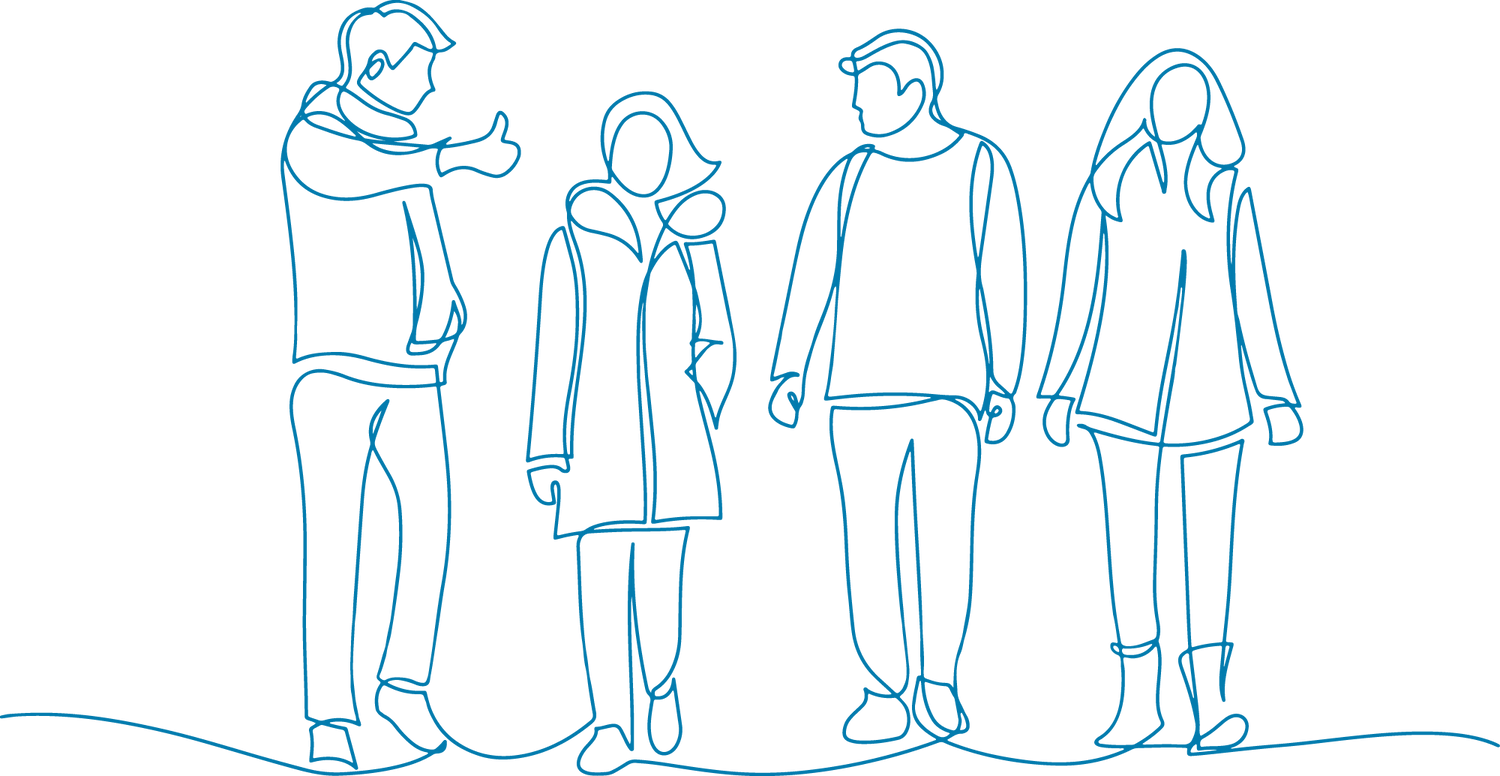When saying yes is a mistake
Have you ever agreed to something that you really didn’t want to do?
Have you ever said yes to something and then regretted it?
Do you sometimes notice that you’re not making time for yourself because you’re too busy meeting everyone else’s needs?
Do you struggle to say no to people, even when it's costing you dear?
It might be that you often find yourself saying yes because you want to please people and be a “nice, kind person”. It might be that you’re saying yes because it’s a way of gaining approval. It might be that you’re scared of offending people and coming across as mean. People who struggle to say no often have low levels of self-esteem and can feel like they’re not good enough. Once upon a time, a long time ago, I used to be that person.
There are countless examples of when I've said yes and regretted it. I once said yes to looking after someone's dog while she was looking for somewhere to live. I was uncertain about it, I wasn't sure it was the right thing for me and I didn't know if I'd be able to fit it in to my busy working lifestyle. But I said yes in the heat of the moment because I felt sorry for her and I wanted to play the rescuer...
The next couple of months were hell.
I became a crying, depressed and stressed wreck of a person. The number of times I phoned my partner in tears because I couldn't cope with it!
The dog was huge and took over my house and my life. She couldn't be left alone without getting anxious - this meant shopping trips and going out for work meetings were suddenly full of stress. She barked at every noise outside which meant phone-calls and important Teams meetings were fraught with tension. I had to keep muting myself and turning the camera off to deal with her demented barking. I started to feel angry and frustrated with her instead of calm and soothing.
Walking her three times a day around work commitments was a struggle. Walks were a stressful event because she didn't know how to walk on a lead, she pulled ahead (she was 45 kilo of BIG dog!) so it was a constant battle. I couldn't distract her with toys or food because the only thing she was interested in was the environment around her and didn't seem to know how to play. It didn't matter how much energy I put in to animating toys and trying to make myself exciting, she just wasn't interested.
She went crazy if she saw another dog and tried to get to them which meant I had to get as far away from said other dog as I could - which meant walking through deep, wet, ploughed, muddy fields dragging a 45 kilo dog who didn't want to come... It turned out the dog had issues that only became clear to me once it was too late. My life and wellbeing was wrecked while I had her and all because I said yes on automatic because I wanted to "be nice".
Honestly, that was something I said yes to that I really wished I hadn't... if I'd have taken some time to consider it and had said no, it would have been much better for all of us.
Why saying no is important
People who care for themselves, know their own worth and are good at looking after their own needs are much better at putting boundaries around themselves and their lives. They’re much better at saying no to requests and demands that could impact on their own wellbeing.
People who care for themselves gain more respect and credibility than people who bend over backwards to help and please others because they demonstrate their own worth by putting their own welfare and needs first. By perceiving and treating yourself as someone of value and worthy of respect, you inspire others to see you in the same way.
You can say no and still be kind and caring. You can say no and be respectful as you do it. You can say no and still remain a valuable friend, colleague or family member.
Being able to say no is a vital skill in the art of looking after yourself. Saying no gives you the opportunity to live your life the way you want to and to become your best self. It also enables you to give more to other people. When your battery is topped up, you have more energy to give.
Here’s a four-step strategy you can use to help you take control and say no more often.
1. Buy yourself time
In other words, don’t give a response straightaway when someone asks you for a favour. When you give an answer in the heat of the moment, you're much more likely to say yes. You’re more likely to answer automatically from your unconscious programming, through old behaviour patterns. You're more likely to answer without thinking because you haven't had time to think. In the heat of the moment, you might feel under pressure. You're more likely to say yes automatically because you're unprepared.
You need time to consider the request and to decide whether it's right for you to agree or to decline.
When someone requests something of you, you can buy yourself time by letting the person know that you’ll give their request some thought and get back to them – maybe you need to consult a diary or talk to another person before you commit. Maybe you'll get back to them tomorrow, or by the end of the day, or in 20 minutes. Buy yourself the time to consider what you actually want to do and what works for you. Having time to think gives you more control over how you respond.
There are different ways you can buy yourself time: a quick trip to the bathroom can give you enough time to figure out whether this is something you want to do or not. Saying you're in the middle of something and will give them a call when you're done is perfectly reasonable. Saying you have to check with a partner or consult your diary is good. Simply saying the truth, that you're busy and would like time to think about it and will get back to them later is REALLY good because it demonstrates that you care enough about their request to give it proper thought and attention at the same time as demonstrating that you care about yourself to manage your life in the best way for you.
An example of when this recently happened to me was my sister called me a couple of days ago and asked me if I’d house and dog-sit for her next week. It would have been easy for me to have responded with my people-pleasing hat on and to have said, “Yeh, sure, no problem,” because I don’t want her to think I’m mean or selfish (my old, unconscious programming). But I bought myself time to consider things by telling her I’d have to check my diary for the week and I’d get back to her that evening when I had my diary in front of me.
2. Consider and decide
Now that you’ve bought yourself time, you get to decide what works for you and whether or not you want to agree to the request.
And (the important bit) you do this WITHOUT CONSIDERING THE FEELINGS OF THE PERSON WHO MADE THE REQUEST. You make this decision as if it doesn’t matter what the other person feels. As if they're not as important as you. The only consideration is you and whether you can help, whether you want to help and whether your boundaries are crossed if you were to help.
You make the decision, weighing everything up based on what YOU want to have happen as if that other person’s needs don’t matter at all – it’s your needs that are the priority (you can do this because you’re going to consider the other person in the next step). The important thing here is that you don’t allow your boundaries to be crossed. Whatever the situation.
To continue with my example, once I’d told my sister that I’d get back to her, I sat down with my diary and looked at my commitments for the following week.
I decided that I did want to help her out. I decided I did want to look after her dog and I’d quite like to stay at her house for a couple of days. But I came to this conclusion rationally and after some reflection. I also decided that I only wanted to do it for two days and only stay over for one night. This was in case I didn’t sleep well at hers – one night of not sleeping well would be fine as I’d know I’d be back in my own bed the following night.
So, I checked my diary and looked at my commitments and decided I could offer to do Monday and Tuesday or Thursday and Friday, depending what would be most useful to her. I had a couple of local work commitments on Wednesday whereas all of my other commitments were phone or online appointments which I could do just as easily from her house.
3. Practise and rehearse
Now you’ve decided how you’re going to respond to the request, you need to think about exactly what you’re going to say and how the person might respond.
Usually, people just accept what you're saying because you've clearly given it time and thought. And, you've practised your response so you deliver it assertively and confidently so it brokers no arguments.
It's helpful to mentally rehearse the conversation, imagining that you're sticking to your guns in the face of any resistance, being assertive, calm, respectful, caring and in control of the situation. You might want to imagine the worst case scenario so you can build your confidence in responding to it. You can mentally rehearse the conversation and how you'd respond if it didn't go well. You can imagine any arguments the person who made the request might give you, any persuasive techniques they might use, how they might try and get you to agree and how you'd respond and stay assertive, confident and calm. You can even imagine what it would be like if they were to beg, plead and cry and how you would respond to that. For those of you having Personal Coaching with me, you can use the Imagine the Difference technique for this.
It’s a good idea to rehearse what you’re going to say out loud in advance. You can do this in front of a mirror over and over until you're feeling completely confident and it's coming automatically and easily.
It’s perfectly possible to say no at the same time as being kind, considerate and caring. You can care for and respect the other person at the same time as giving them your answer.
A good way to get confident with giving them your answer, if it’s one you think they don’t want to hear, is to
- Mentally rehearse doing it confidently, calmly and assertively, even in the face of resistance (use the Imagine the Difference technique if you have it)
- Imagine a role reversal: imagine you're in their shoes and listening to your response. Most of us will happily hear someone saying no to us and will understand and accept it without it having any impact on our relationship at all. You might need to remind yourself that hearing someone say no to you isn't the end of the world. That helps you to feel better about saying no yourself.
- Understand that you gain more respect and credibility when you look after yourself and sometimes assertively say no than you do when you keep caving in to demands and requests. Being a doormat doesn't get you respect. When you're keeping boundaries around yourself, you come across as reliable, in control and on top-of-things. You come across as trustworthy. I have a lot more respect for people who are up front and honest about what they can and can’t do than people who seem to be promising the world because they just want to be seen as a lovely person and don’t want to let you down
In my example with my sister's request, I didn’t actually do any of this practise and rehearsal because I've already practised this stuff a lot and looking after my own needs comes naturally to me now. I was totally confident that, once I'd decided what I wanted to do, I could give my sister the answer that worked for me and that she would accept it and work with it. But buying myself time to reach the decision that worked for me, rather than feeling as if I was under pressure to decide what to do was crucial. When you’re first starting to practise this approach though, this practice and rehearsal stage is really important.
4. Give your answer
Stick to what you’ve decided. Get curious about how they’ll respond to you instead of worrying about it. Be prepared to calmly assert yourself (you’ll have already rehearsed this anyway). You’ll be surprised at how much people just accept what you’ve told them. Because you’ve clearly given it thought and time and because you’re putting things calmly and assertively, people just tend to accept what you're saying.
When I told my sister that I could do either Monday/Tuesday or Thursday/Friday, she made a note of it and said she’d discuss it with her partner and thanked me for getting back to her. She was happy that I’d given it the time and consideration it needed and had got back to her as I said I would. She knows she can rely on me and that I’ll do exactly what I say I’m going to do. This approach also builds trust!
Saying no and staying sober
Each time you follow this four-step approach and carry through with it, you’ll get more and more confident and your life will become more and more under your control.
Summary:
- BUY YOURSELF TIME
- CONSIDER AND DECIDE
- PRACTISE AND REHEARSE
- GIVE YOUR ANSWER
This approach is invaluable when you stop drinking. You might need to say no to invitations and social events, at least in the early days. You might find yourself on automatic pilot a lot of the time. Practising this approach takes you out of automatic and into conscious, mindful thinking that gives you control and puts you at the heart of things.
Taking the time to decide what you can handle and what you can't is an important technique that sets you up for success when you're first learning to navigate the world sober. It helps you to put yourself at the centre of your world. If this feels alien and uncomfortable to you then you need to do more of it!
Although this is a vital skill to develop to help keep you safe and sober, it's also an approach you can use in any situation, any request, any context!


